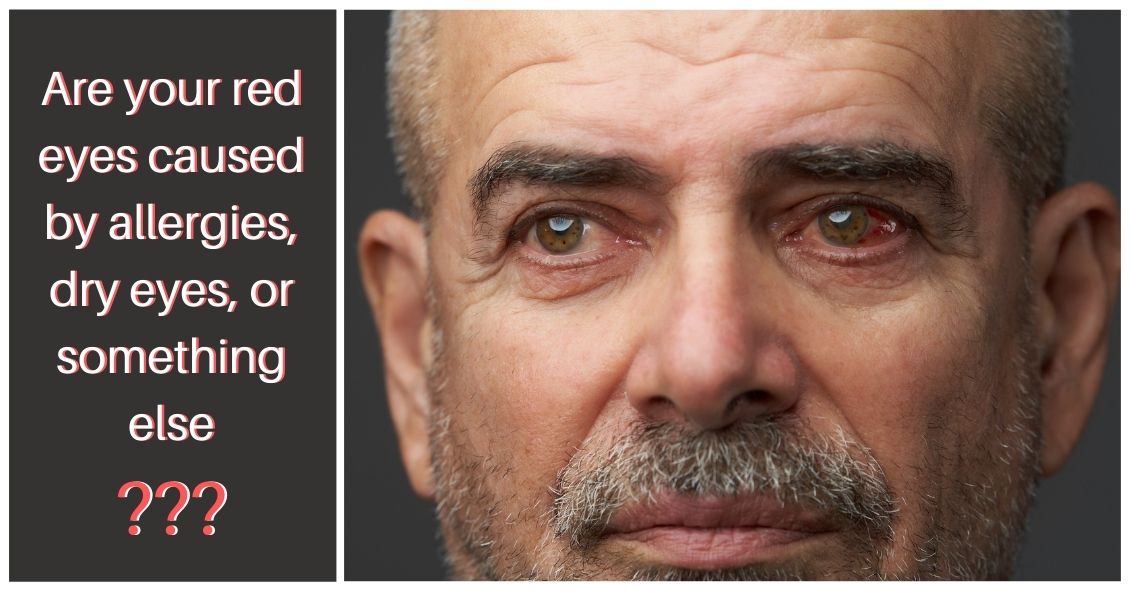
As an eye doctor, diagnosing a red eye can be challenging. Are we dealing with an infection, allergy, inflammation or dryness?
One of the most common questions I get is, “Doc, my eyes are red, burning, itchy, and tearing. Is this dry eye or from allergies?” The short answer is it could be one, both, or neither. I’ll outline various ways these conditions present clinically and the treatments for them.
The hallmark symptom of allergy – meaning if you have this symptom you almost definitely have the condition – is itching. Red, watery, ITCHY eyes are almost invariably due to an allergen, whether environmental or medicinal. It is one of the most common ocular conditions we, as eye doctors, treat -- especially when plants are filling the air with pollen as they bloom in the Spring and then die off in the Fall.
The itching occurs because an immune cell called a mast cell releases histamine, causing the itching sensation. It can be quite unbearable for the sufferer, causing them to rub their eyes constantly, which actually increases the amount of histamine in the eye, leading to worsening of the symptoms.
Treatments may include:
- Over-the-counter or prescription allergy drops (mostly anti-histamines or mast cell stabilizers).
- Topical steroids (to get the inflammation under control).
- Cool compresses applied to the eye.
Patients sometimes need to take drops every day to keep their symptoms under control.
Dry eye can have many of the same symptoms as allergic eye disease, with the eye being red and possibly watery ("My eyes are tearin--how could it be dry eyes?"). The main exceptions are that people with dry eyes tend to complain more of burning and a foreign body sensation - like there is sand or gravel in the eye - rather than itchiness.
Dry eye is a multi-faceted disease with many different causes and treatments. Treatment ranges from simple re-wetting eye drops to long-term medications (both topical and oral), as well as non-medicinal treatments such as eyelid heating treatment.
So how do we determine the difference? The first question I ask patients who complain of red, watery, uncomfortable eyes is, “What is your MAIN symptom? Itching or burning?” The answer will likely direct which course of treatment we take, and as those treatments sometimes overlap, you may have a component of both dry eye and allergy.
That is important to distinguish because many of the treatments we use for allergies - like antihistamine eye drops - can sometimes make the dryness worse. Though neither of these conditions is 100% curable (except maybe for allergy, where if you remove the allergen, you obviously won’t get symptoms!). We have many tools in our treatment arsenal to keep the symptoms at bay.
Unfortunately, dry eye and allergy aren’t the only two things that can cause your eye to have the multiple symptoms of red, watery, itchy, burning eyes. There are other problems, such as blepharitis, that can produce a similar appearance, as well as bacterial and viral infections.
So before embarking on a particular therapy, it is wise to have a good exam to help you get on the right track of improving your symptoms.
Article contributed by Dr. Jonathan Gerard




